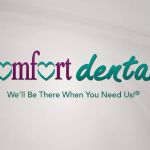- Understanding Oral Surgery Recovery
- Key Steps for a Smooth Recovery
- Importance of Following Aftercare Instructions
- Common Challenges During Recovery
- Enhancing Recovery with Diet and Lifestyle
- When to Seek Medical Help
- Final Thoughts and Recommendations
Understanding Oral Surgery Recovery
Oral surgery, whether it's a tooth extraction or a more complex procedure, requires careful attention during the recovery period. Recovery is a gradual process that involves both physical healing and proper aftercare. It's essential to understand the stages of recovery to ensure the best results and minimize complications.
Key Steps for a Smooth Recovery
Following oral surgery, there are several key steps to ensure a smooth recovery. First and foremost, follow your surgeon's instructions regarding medications, rest, and oral hygiene. Rest is critical in the initial stages, as it allows your body to focus on healing.
Importance of Following Aftercare Instructions
Adhering to your aftercare instructions is vital for minimizing risks like infections, swelling, and prolonged pain. Proper care also helps in reducing the risk of dry sockets, which is a common issue in oral surgery recovery. Regular follow-ups with your dentist or surgeon are essential to track progress and catch any issues early.
Common Challenges During Recovery
While recovery from oral surgery is often straightforward, some individuals may face challenges like swelling, bleeding, or discomfort. These are all part of the healing process, but it’s important to know when these issues are normal and when they might indicate a problem. Your surgeon can guide you through these challenges to ensure recovery stays on track.
Enhancing Recovery with Diet and Lifestyle
A balanced diet and healthy lifestyle can significantly boost your recovery. Eating soft foods, staying hydrated, and avoiding smoking or drinking alcohol can reduce inflammation and help speed up the healing process. Incorporating foods rich in vitamins and minerals can also help with tissue regeneration and reduce infection risks.
When to Seek Medical Help
While most individuals recover without issues, there are signs you should watch out for that may require medical attention. These include excessive bleeding, severe pain, or signs of infection like fever or unusual discharge. Always consult your healthcare provider if you feel something is not right.
Final Thoughts and Recommendations
In conclusion, a successful oral surgery recovery relies on following a detailed aftercare plan, making lifestyle adjustments, and knowing when to seek help. If you’re looking for further support or products to assist in your recovery, Dentistry Toothtruth offers valuable resources and products that can aid in the healing process.







 Dean Street Dental5.0 (259 review)
Dean Street Dental5.0 (259 review) Comfort Dental North Powers4.0 (914 review)
Comfort Dental North Powers4.0 (914 review) Richards & Associates Orthodontics4.0 (228 review)
Richards & Associates Orthodontics4.0 (228 review) Babylon Dental Care4.0 (388 review)
Babylon Dental Care4.0 (388 review) North Aurora Smiles4.0 (223 review)
North Aurora Smiles4.0 (223 review) Creve Coeur Dental4.0 (399 review)
Creve Coeur Dental4.0 (399 review) The Importance of Oral Health Education During Pregnancy for a Healthy Pregnancy
The Importance of Oral Health Education During Pregnancy for a Healthy Pregnancy Best Tips for Brushing Your Teeth Properly for Healthy Gums: Essential Techniques for Oral Health
Best Tips for Brushing Your Teeth Properly for Healthy Gums: Essential Techniques for Oral Health Why Skipping Dental Checkups Can Lead to Bigger Oral Health Problems
Why Skipping Dental Checkups Can Lead to Bigger Oral Health Problems Advantages of Porcelain Dental Restorations
Advantages of Porcelain Dental Restorations How Can Diabetes Cause Tooth and Gum Problems? Preventing and Managing Oral Health Issues
How Can Diabetes Cause Tooth and Gum Problems? Preventing and Managing Oral Health Issues Healthy Habits for Promoting Good Oral Health and Hygiene: Tips for a Healthy Smile
Healthy Habits for Promoting Good Oral Health and Hygiene: Tips for a Healthy Smile